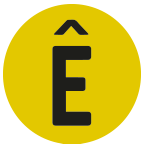Words by Jeremy Whittle | Photo by SWpix.com
Not since the 2014 Tour de France has a Dave Brailsford-run Tour de France team seemed so unsure of itself. So why, after sweeping almost all before them in the week-long stage races prior to this year’s Tour, have Ineos Grenadiers seemed so underpowered?
Less than a year ago, in September 2020, racing in the shadow of the pandemic, there was a glum air hanging over Brailsford’s team, personified by defending champion Egan Bernal’s pained expression when he finally accepted that his back problems would prevent him from mounting a successful defence of the yellow jersey he had won in 2019.
But you have to go back to 2014, the year of Chris Froome’s abandon on the fifth stage to Arenberg, to recall a Sky or Ineos Grenadiers squad that felt so directionless, even meandering, as the Tour entered its final stages. This a team designed to dominate, a team that wins serial Grand Tours — it doesn’t scrap for the podium.
“It’s no fun when you’re not winning,” Brailsford told me in Paris in July 2014. It’s safe to assume that nothing in his attitude has changed in the intervening years.
Of course the British team still has high hopes of a top three finish for Richard Carapaz, the Ecuadorian that the team are calling “Billy,” but who now, with one mountain stage to go, has little hope of toppling the untouchable Tadej Pogacar from his perch at the pinnacle of the world’s biggest and baddest bike race.
There is no doubt that it has been an odd Tour for Ineos Grenadiers, in which they have blown hot and cold. The tone was set even before the race began when the ‘four leader strategy,’ was set up in the pre-race press conference with Geraint Thomas, Carapaz, Richie Porte and Tao Geoghegan Hart, all meeting the media, one by one.
By stage three, the four-pronged tactic was already out of the window, after Geoghegan Hart crashed on stage one and Thomas crashed and dislocated his shoulder.
Almost immediately a lack of clarity and unity was evident. Tour debutant Geoghegan Hart in particular was irked by one journalist’s question, which related the order of appearance in the zoom call, with Thomas coming first, to the team’s hierarchy.
“I think that’s a ridiculous question,” Geoghegan Hart said. “Is the first one the best or is the last one the best? But when you leave the room who are you going to be thinking about? The last person you just spoke to.”
By stage three, the four-pronged tactic was already out of the window, after Geoghegan Hart crashed on stage one and Thomas crashed and dislocated his shoulder on stage three. By that point, Porte was slipping away also and by the time the peloton tackled the first Alpine stage, the reality was that only Carapaz remained in contention.
Mystery has surrounded the team’s relations with the media, with most at the Tour experiencing them as avoidant. Dave Brailsford, understandably wary given the recent findings of the Richard Freeman hearing, has avoided all but the most cursory contacts with the press.
And then of course, there’s ‘The Plan.’ Did the riders every really buy into the much-vaunted four leader strategy?
“With the team that we have, Pogacar cannot follow all of us,” Porte had said in Brest. “There should be four of us up there, hopefully, when we hit the mountains. We have such a strong team. That’s our trump card.”
By the second rest day, Geoghegan Hart was openly dissing the tactic.
“You can’t protect four riders in the Tour — it’s never going to happen,” the Londoner said.
Without Egan Bernal, with Thomas in his twilight years, and lacking the talismanic qualities that both the late Nico Portal and former team leader Froome gave them, the British team has been strangely anonymous.
For a rider who focussed so much on the Tour, maybe his prickly demeanour is understandable. Deprived of the chance to start the Giro d’Italia with the number ‘1’ pinned to his jersey, his Tour debut has been pretty miserable, particularly after his crash on the opening stage.
The loss of Luke Rowe on the Mont Ventoux stage, after the veteran road captain finished outside the time limit, seemed to undermine the old Band of Brothers image, definitively. At times, it did not seem that the team was pulling together. Carapaz, meanwhile, has continued to plough a gutsy but lonely furrow and deserves the podium finish that now seems likely.
Yet if it hadn’t been for the Ecuadorian how would this Tour have panned out for Ineos?
Without Egan Bernal, with Thomas in his twilight years, and lacking the talismanic qualities that both the late Nico Portal and former team leader Froome gave them, the British team has been strangely anonymous.
The team’s two sports directors, Gabriel Rasch and Servais Knaven, have experience and expertise of course, but there is no doubt that the team misses the charismatic Portal hugely. Maybe they even miss Froome, too, whose icy calm and driven nature ensured that his team mates always seemed to be primed, briefed, and on their toes.
Without any stage wins, and leaning heavily on a rider who struggles to communicate with his team mates in English, it has been a strange Tour de France for Ineos. It seems now almost certain that this will be the second consecutive Tour in which overall victory has eluded them.
This is a team in transition, a team that once dominated, now trying to find its footing again. Brailsford, so disconsolate when Team Sky, sans Froome, failed to succeed in 2014, will be well aware that claiming a podium step is nice, but it’s not enough, for a franchise that always expects to win.






